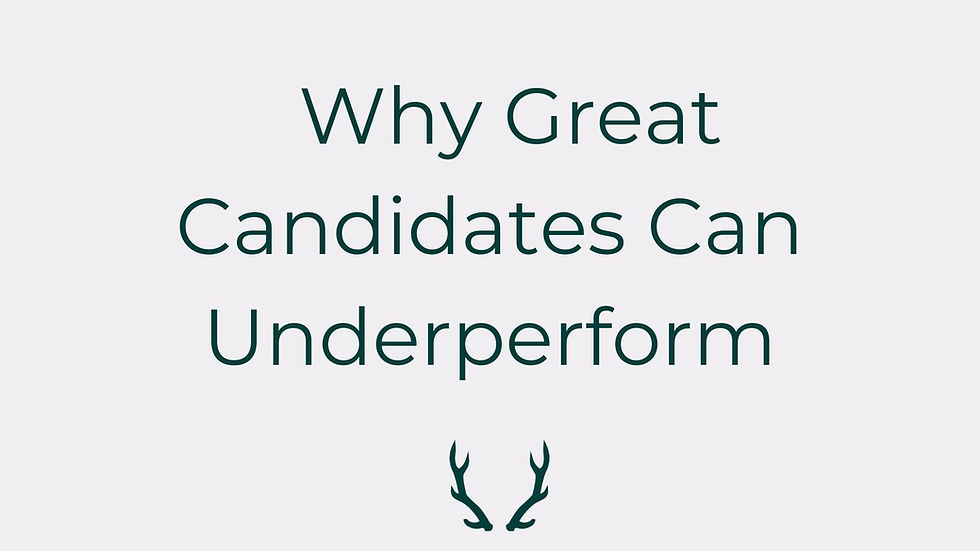What Recruiters Look For in Cover Letters
- Joynes & Hunt

- Nov 19, 2025
- 2 min read
A cover letter can feel like an afterthought, especially when you’ve already spent hours perfecting your resume. But to many recruiters, it’s still one of the most telling parts of a job application. A strong cover letter can quickly separate you from applicants who rely on generic templates or skip the letter altogether.
So what exactly are recruiters hoping to see, and how long should your cover letter really be? Here’s a breakdown.
Why Cover Letters Still Matter
Despite the rise of automated hiring systems and rapid-fire job applications, cover letters remain a valuable tool. Recruiters use them to understand:
Your communication skills
Your motivation for the role
Your personality and cultural fit
Your ability to tailor your message
In a competitive hiring landscape, a targeted, thoughtful cover letter signals genuine interest and professionalism.

What Recruiters Look For in a Cover Letter
1. Personalisation
Recruiters can spot a template from a mile away. A strong cover letter should:
Address a specific person whenever possible.
Reference the company’s mission, projects, or values.
Demonstrate that you understand the role and its challenges.
Tip: One sentence showing you’ve done your research goes a long way.
2. Clear Motivation
Hiring managers want to know why you want the job.
They’re looking for answers like:
Why this company?
Why this role?
Why now?
Showing genuine enthusiasm helps illustrate fit and commitment, not just that you’re mass-applying.
3. Relevant Highlights
A cover letter is not a paragraph version of your resume. Instead, it should spotlight one or two accomplishments that directly relate to the job.
Recruiters want to see impact, such as:
Data-driven results
A challenge you solved
A project relevant to the position
This helps them picture how you can contribute from day one.
4. Professional, Concise Writing
Clear, polished writing signals attention to detail and communication skills, qualities nearly every job requires. Recruiters look for:
Clean structure
Error-free writing
A confident but not overly formal tone
You don’t have to be a literary genius; you just need to sound like a thoughtful professional.
5. A Strong Closing
The ending of your cover letter should:
Reaffirm your interest
Thank the reader
Include a light call to action (e.g., “I’d welcome the chance to discuss how my experience can support your team.”)
Confidence without arrogance is key.

How Long Should a Cover Letter Be?
Recruiters overwhelmingly prefer short, focused, and skimmable cover letters.
Ideal Length:
3–4 short paragraphs
250–350 words
One page maximum (but half a page is often better)
Why shorter is better:
Recruiters read quickly, sometimes seconds per application.
A concise letter demonstrates clarity and respect for their time.
It helps you highlight only the most relevant information.
If your cover letter spills over a full page, it’s too long.
Final Thoughts
A great cover letter doesn’t need to be complex or poetic, it just needs to be personalised, relevant, and concise. By showing motivation, highlighting the right achievements, and keeping it brief, you’ll make a stronger impression on recruiters and greatly increase your chances of landing an interview.





Comments